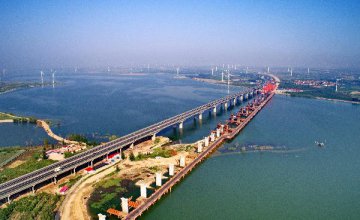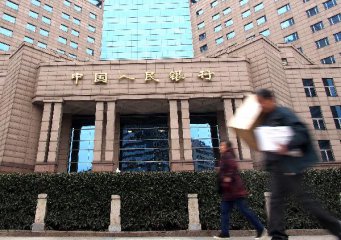
The US-China trade war has created a great deal of anxiety in financial markets. But it will come to an end sooner or later. Washington will end it, the way it did with Mexico and Canada.
But Washington cannot end China’s debt problem, which could be a big problem for the country’s economy and the world economy.
Which is to say that China’s biggest problem isn’t the trade war. It’s the growing debt problem, which finances bubbles at home and abroad.
To be fair, America has a debt problem, too. So does Japan. America’s debt to GDP ratio is 105.40%, according to Tradingeconomic.com. Japan’s debt to GDP ratio is 250%.
These are large numbers. But they are fairly accurate and well-known. So the debt prices and yields of the two countries fully reflect the risk premiums investors must receive in holding them in their portfolio.
That isn’t the situation with China’s debt.
Officially, it is a small number: 47.60%. Unofficially, it’s hard to figure it out. For a good reason: the government is both the lender and the borrower. One branch of the government lends money to another branch of government.
Government-owned banks, for instance, lend money to State Owned Enterprises (SOEs) and Town Village Enterprises (TVEs).
But there are some unofficial estimates. Like one from the Institute of International Finance (IIF) last week, which place China’s debt to GDP at 300%!
Rising debt comes at a time the Chinese economy is expected to slow-down. "Even without the trade war, we expect China's growth to slow down in tandem with a synchronized global downturn next year," says a recent BNP Paribas report.
Meanwhile, credit agencies and financial markets have yet to factor the unofficial debt estimates into the price of Chinese financial assets. That’s why China’s debt rating by S&P and Moody’s are very close to those of America and Japan.
China’s America’s And Japan’s Credit Ratings And Yields
Worse, the government’s role as both lender and borrower concentrates rather than disperses credit risks. And that creates the potential of a systemic collapse. Like the Greek crisis so explicitly demonstrated.
Meanwhile, the dual role of government conflicts and contradicts with a third role. That of a regulator, the setting of the rules for lenders and borrowers.
And it complicates creditor bailouts in the case of financial crisis.
Once again, Greece is a case in point. The reason why the “haircut” of Greek debt had such an immense impact on the Greek economy is that government-controlled banks and pension funds were the creditors of the general government and government-owned enterprises.
This means that the haircut shifted losses from one government branch to another. And created the need for new loans to cover the losses.
The situation could be more severe in China. The government simultaneously owns banks, pension funds, and common corporations.
Government-owned banks lend money directly to government owned corporations. They usually function as welfare agencies.
Banks also lend funds to land developers. They are behind the country’s “investment” bubble, one of the engines of the Chinese economy.
While the parallels between Greece and China’s debt situation and financial structure are paramount, there’s one big difference: China is huge compared to Greece.
So if there’s a financial crisis in China, the impact on the global economy will be huge, too.























Latest comments